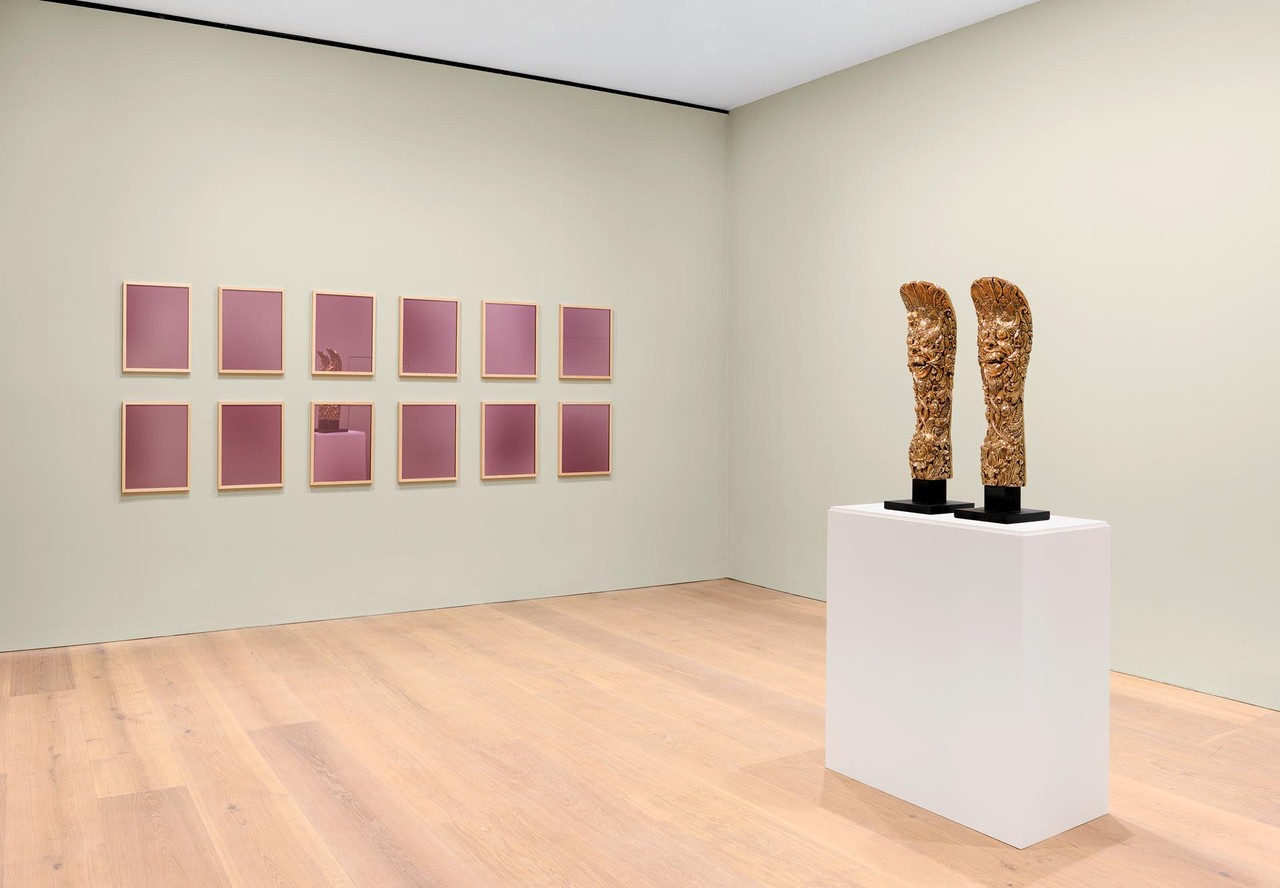Sherrie Levine
Pie Town
04 Oct - 18 Nov 2017
SHERRIE LEVINE
Pie Town
4 October — 18 November 2017
David Zwirner is pleased to present an exhibition of new works by Sherrie Levine at the gallery's 24 Grafton Street location in London. This will be the artist's second solo presentation with the gallery.
Levine’s work engages many of the core tenets of postmodern art, in particular challenging notions of originality, authenticity, and identity. Levine rose to prominence as a member of the Pictures Generation, a group of artists centered in New York in the late 1970s and 1980s whose work examined the structures of signification underlying mass-circulated images, and in many cases directly appropriated these images in order to imbue them with new, critically inflected meaning. Since then, Levine has created a singular and complex body of work in a variety of media (including photography, painting, and sculpture) that often explicitly reproduces artworks and motifs from the Western art historical canon.
On view for the first time in this exhibition will be After Russell Lee: 1-60 (2016), a continuation of Levine's ongoing practice of photographing reproductions of artworks, begun in the early 1980s, and her largest grouping of works to date. Lee was a lesser-known contemporary of Walker Evans—one of Levine’s earliest and most recurrent subjects—and was also a photographer contracted by the Farm Security Administration (FSA). The FSA was an initiative of the American government created in 1935 to combat rural poverty in the wake of the Great Depression, and was perhaps best-known for its small, but important photography program, which existed until 1944 and helped bring public awareness to the challenges faced by the large number of Americans living outside of cities. Simultaneously hailed as informative and derided as exploitative, the now-iconic images taken by the eleven photographers in the employ of the government have come to be regarded as works of art in their own right. Here, Levine revisits one of Lee's most influential projects, a 1940 group of color photographs that depicts life in Pie Town, New Mexico. By debuting this work in London, Levine further complicates its layers of meaning.
A number of cast bronze sculptures that appropriate objects from outside of the Western canon will also be on view, including Gamelan Figures, Naga Effigy, and Little Dancer (all from 2017); as well as Monochromes after Van Gogh Sunflowers: 1-12 (2015) in which the artist makes use of pixelation to produce a series of monochromatic panels where the individual colors are derived from Van Gogh’s iconic paintings.
Pie Town
4 October — 18 November 2017
David Zwirner is pleased to present an exhibition of new works by Sherrie Levine at the gallery's 24 Grafton Street location in London. This will be the artist's second solo presentation with the gallery.
Levine’s work engages many of the core tenets of postmodern art, in particular challenging notions of originality, authenticity, and identity. Levine rose to prominence as a member of the Pictures Generation, a group of artists centered in New York in the late 1970s and 1980s whose work examined the structures of signification underlying mass-circulated images, and in many cases directly appropriated these images in order to imbue them with new, critically inflected meaning. Since then, Levine has created a singular and complex body of work in a variety of media (including photography, painting, and sculpture) that often explicitly reproduces artworks and motifs from the Western art historical canon.
On view for the first time in this exhibition will be After Russell Lee: 1-60 (2016), a continuation of Levine's ongoing practice of photographing reproductions of artworks, begun in the early 1980s, and her largest grouping of works to date. Lee was a lesser-known contemporary of Walker Evans—one of Levine’s earliest and most recurrent subjects—and was also a photographer contracted by the Farm Security Administration (FSA). The FSA was an initiative of the American government created in 1935 to combat rural poverty in the wake of the Great Depression, and was perhaps best-known for its small, but important photography program, which existed until 1944 and helped bring public awareness to the challenges faced by the large number of Americans living outside of cities. Simultaneously hailed as informative and derided as exploitative, the now-iconic images taken by the eleven photographers in the employ of the government have come to be regarded as works of art in their own right. Here, Levine revisits one of Lee's most influential projects, a 1940 group of color photographs that depicts life in Pie Town, New Mexico. By debuting this work in London, Levine further complicates its layers of meaning.
A number of cast bronze sculptures that appropriate objects from outside of the Western canon will also be on view, including Gamelan Figures, Naga Effigy, and Little Dancer (all from 2017); as well as Monochromes after Van Gogh Sunflowers: 1-12 (2015) in which the artist makes use of pixelation to produce a series of monochromatic panels where the individual colors are derived from Van Gogh’s iconic paintings.

